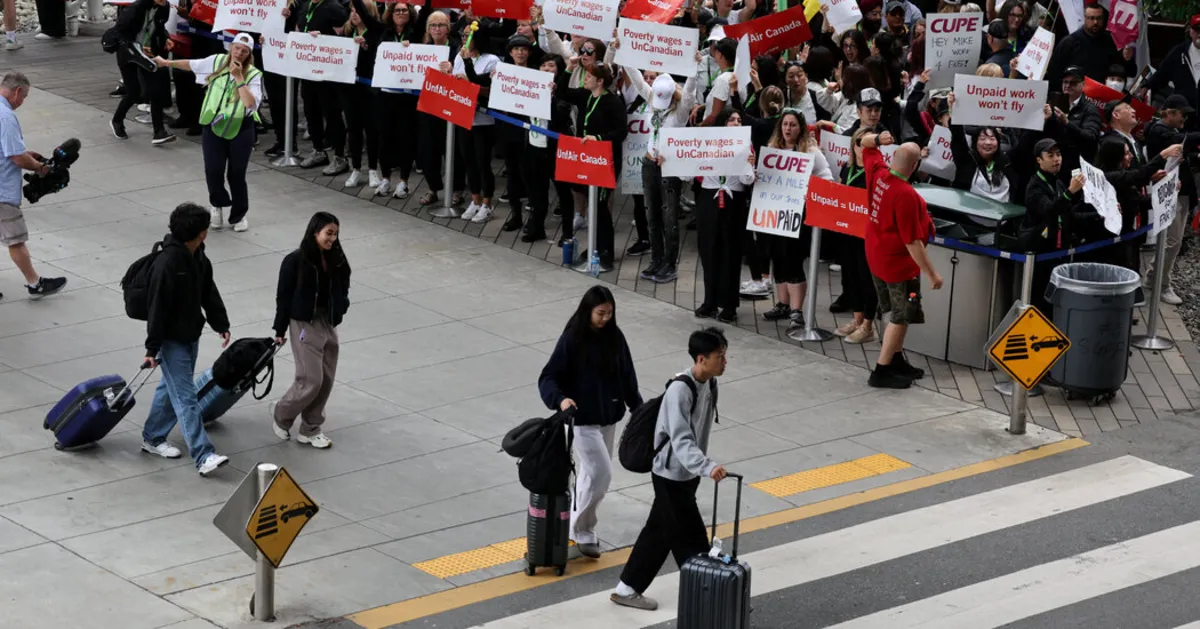
On Monday, the Canada Industrial Relations Board declared the strike initiated by Air Canada’s 10,000 flight attendants illegal. The board mandated that the union must inform its members to return to work by midday. However, the implications of this ruling on the ongoing walkout, which has effectively grounded Canada’s largest airline, remain uncertain.
The Canadian Union of Public Employees (CUPE) argues that the government's intervention on Saturday—specifically the decision to end the strike through binding arbitration—violates their constitutional right to strike. In response, the union has filed an application for an injunction with the Federal Court of Canada to contest the back-to-work order.
According to Air Canada, the strike, which commenced early Saturday morning, has resulted in the cancellation of flights affecting approximately 500,000 passengers. The airline expressed regret over the disruption, stating, “Air Canada regrets this impact on its customers and is fully committed to returning to service as soon as possible.” At this time, the union has not released any immediate comments regarding the board's decision.
The independent Canada Industrial Relations Board has given CUPE until noon Monday to call off the strike. Initially, Air Canada had planned to resume some flights by Sunday evening but later postponed this to Monday evening. The office of Patty Hajdu, Canada’s labor minister, has refrained from commenting on the situation.
Air Canada currently holds approximately 48 percent of the available seat miles in Canada, a key industry metric for capacity. Unlike its smaller competitors, Air Canada also offers international service to 65 countries. While the airline is making efforts to rebook affected passengers on alternative airlines, the peak summer travel period, combined with the limited capacity of its rivals, has created significant challenges. Many passengers have found themselves rebooked on Air Canada flights days later than their original travel dates, in hopes that the airline will resume operations soon.
The flight attendants' union is advocating for higher wages, particularly for its less senior members. Additionally, it seeks to align Air Canada’s policies with those of other U.S. carriers by eliminating the longstanding industry practice of not compensating flight attendants for work performed before takeoff and after landing.